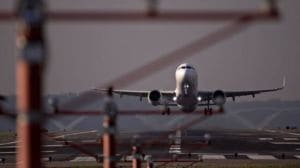Saddam’s Iraq a safe haven: Christian monk
In a bleak rocky outpost of north Iraq, Christian monk Bihman Samarchy chats about the year he spent recently in the Jewish quarter of Jerus...

In a bleak rocky outpost of north Iraq, Christian monk Bihman Samarchy chats about the year he spent recently in the Jewish quarter of Jerusalem’s old city.
Dressed in the traditional black robes of the eastern Christian churches, he speaks softly in this lonely monastery perched on a mountainside between the city of Mosul and the Kurdish enclave in the far north of Iraq.
‘‘I stayed there for a year and right now there are four Iraqis out of the six people at our monastery. For me it’s just a service,’’ said Samarchy, an Arab from a country with no relations with Israel and which glorifies Palestinians fighting Israeli occupation.
But Samarchy is as free to talk about the forbidden land as he is to go there, indications of the freedom this Christian sect says it has enjoyed in the modern Iraq run by the Baath Party since 1963.
Iraq allows monks to serve time in the church’s Mar Morqos monastery in east Jerusalem, on condition that no Israeli stamps are placed in their passports.
‘‘We had nothing to do with politics,’’ Samarchy said. ‘‘As Christians our way is love and that’s what makes us able to go. You know that in the story of Noah’s ark, the snake lived next to the dove. In our own church tradition, the snake coiled itself around the dove in order to protect it.’’
After his time in Israel, the church chose Samarchy, 32, as one of its four monks in residence at Mar Matta, the oldest monastery in Iraq, dating from the fourth century AD.
Christianity has a long and distinguished history in Iraq, now a mainly Muslim country of 23 million. Tradition says one of Christ’s apostles, Thomas, visited the ancient land, making it one of the first countries where the religion spread.
With the spread of Islam after the Arab conquest of the West Asian region in the seventh century, the number of monasteries eventually fell to today’s four from the dozens noted by medieval Muslim chroniclers.
Today, the Baath regime has opened its doors to Iraq’s Christians, and none of them is showing enthusiasm for a war which could even lead to the division of the country.
A federated or divided Iraq could give sway to mainly Muslim Kurds, who dominate in north Iraq where most of the country’s Christians also live. The Mosul district, where the various Christian denominations make up almost half of the population, was kept out of the Kurdish self-rule area set up after the 1991 Gulf War to end Iraq’s occupation of Kuwait. (Reuters)
Photos


- 01
- 02
- 03
- 04
- 05





























